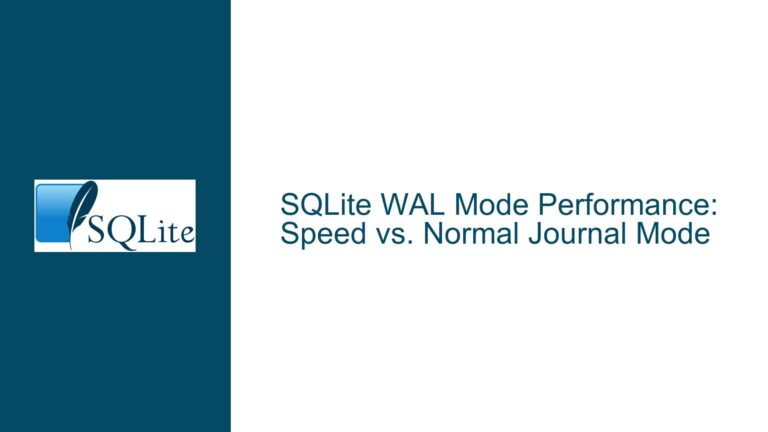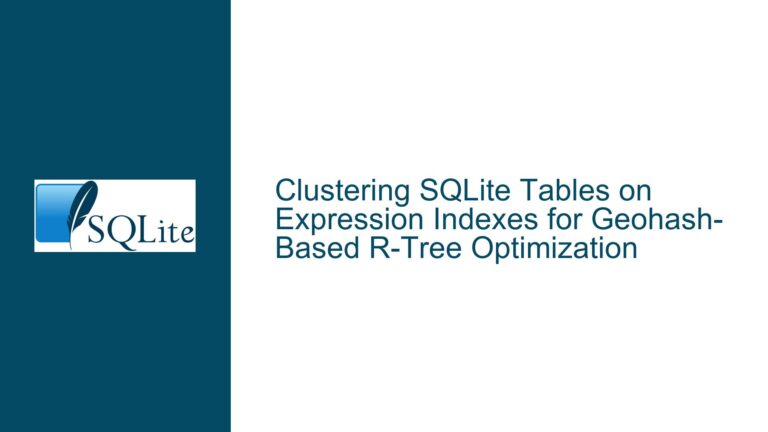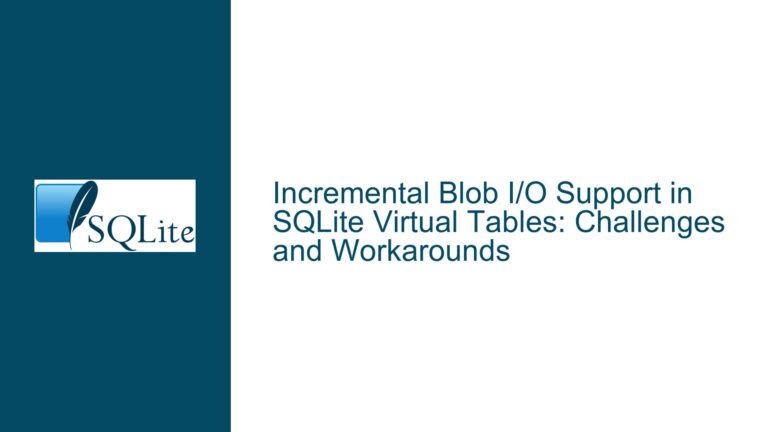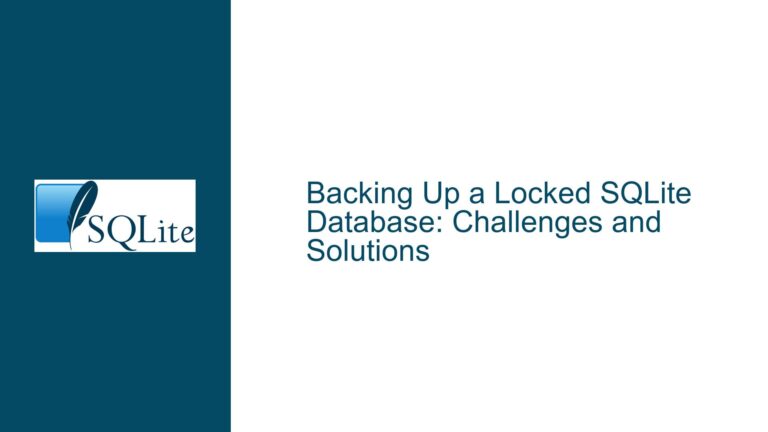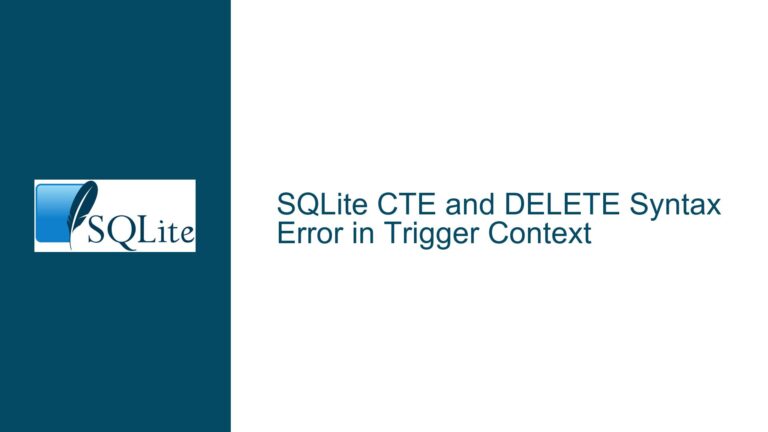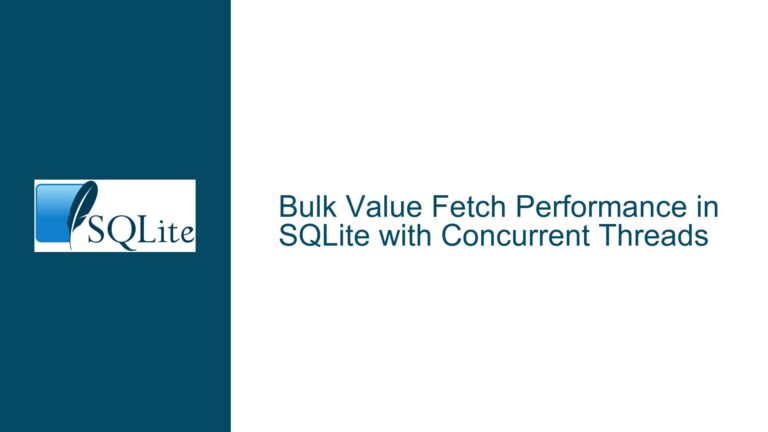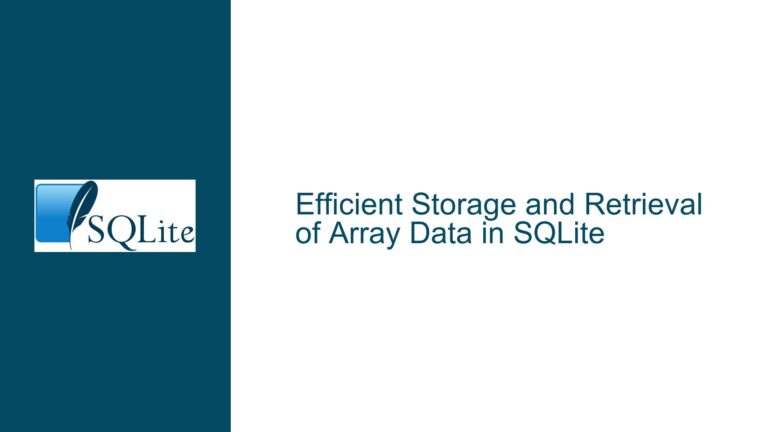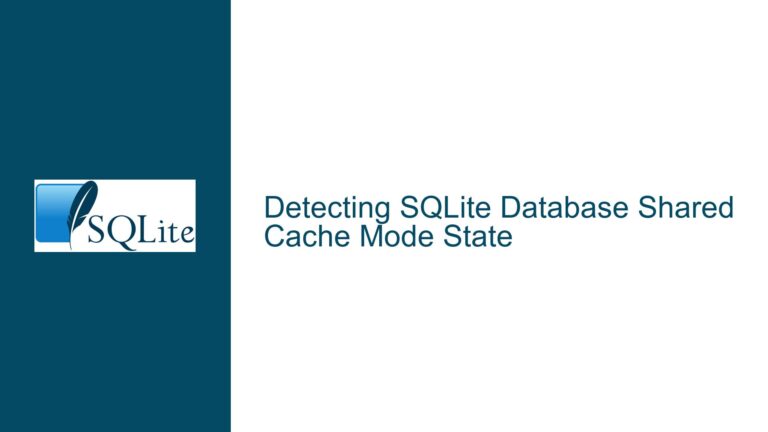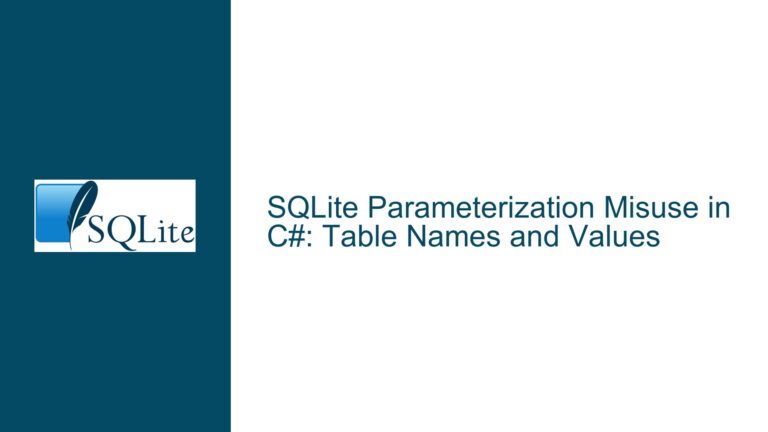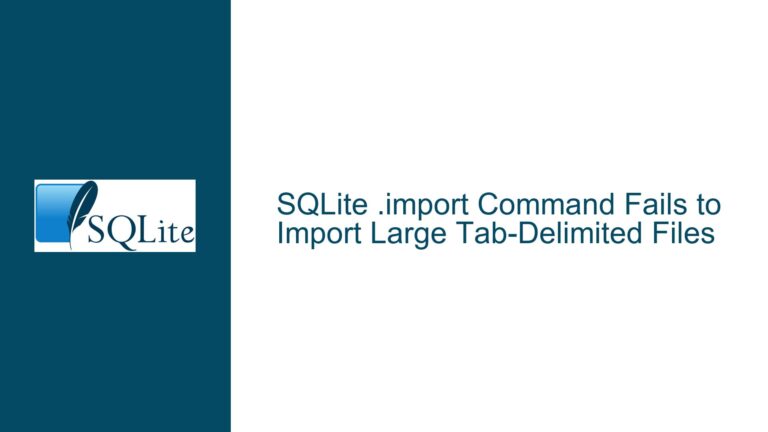SQLite WAL Mode Performance: Speed vs. Normal Journal Mode
WAL Mode Performance Claims and Real-World Scenarios The Write-Ahead Logging (WAL) mode in SQLite is often touted as being "significantly faster in most scenarios" compared to the traditional rollback journal mode. However, this claim is not universally applicable and depends heavily on the specific workload, concurrency, and system environment. The primary advantage of WAL mode…
